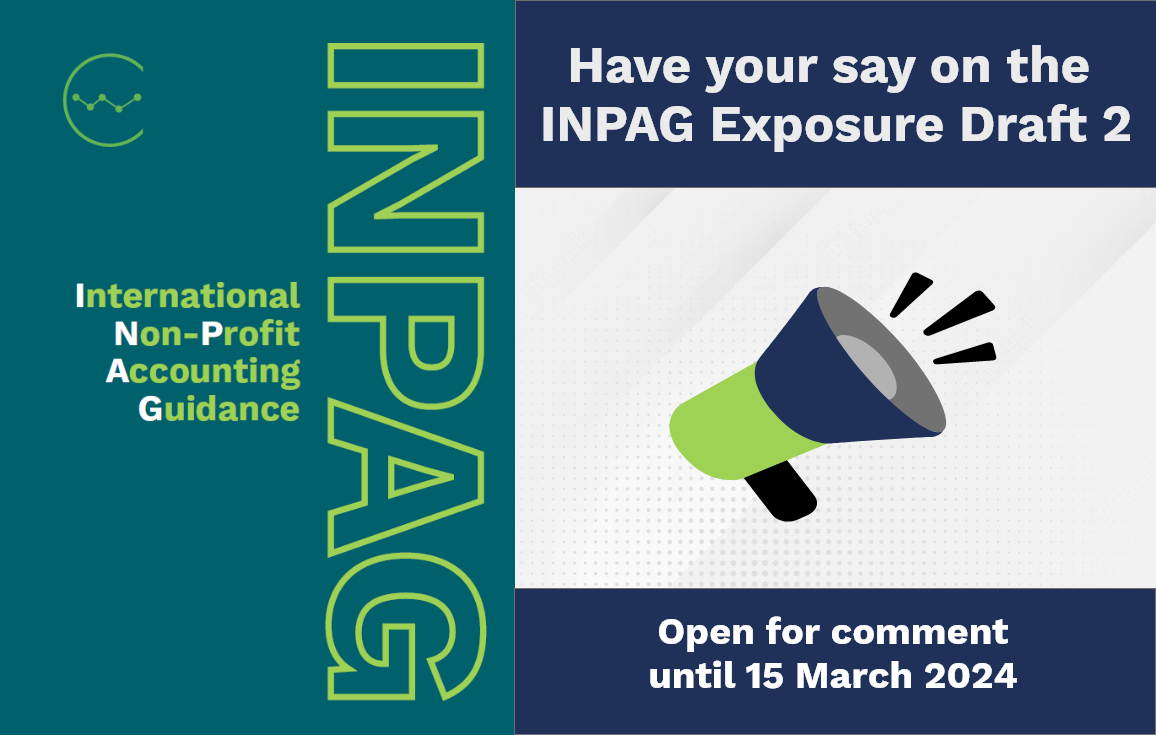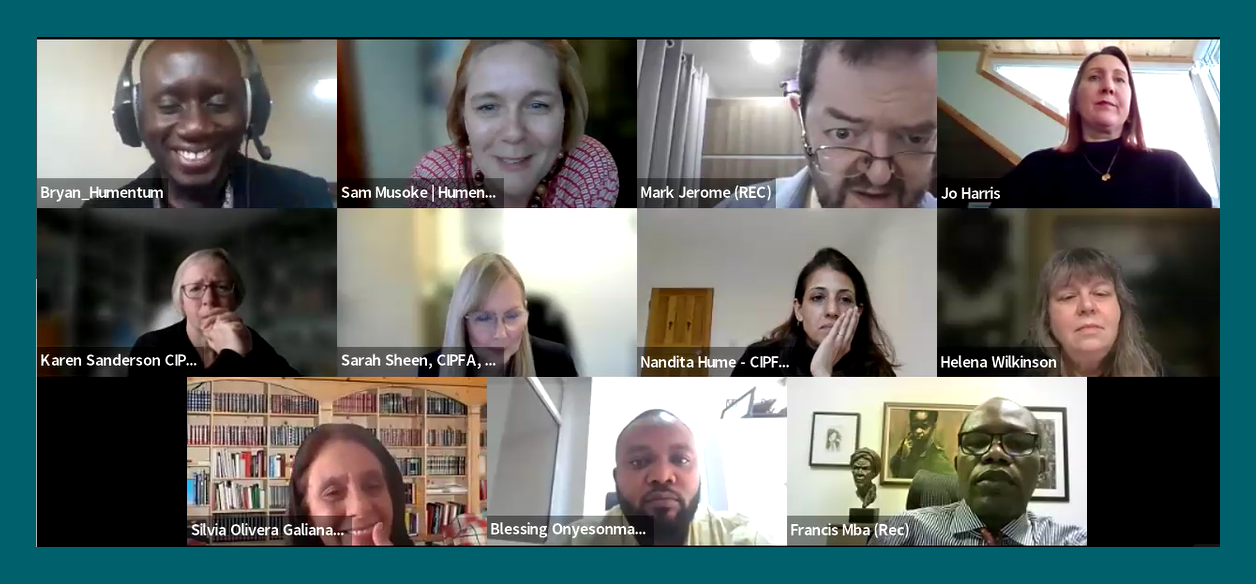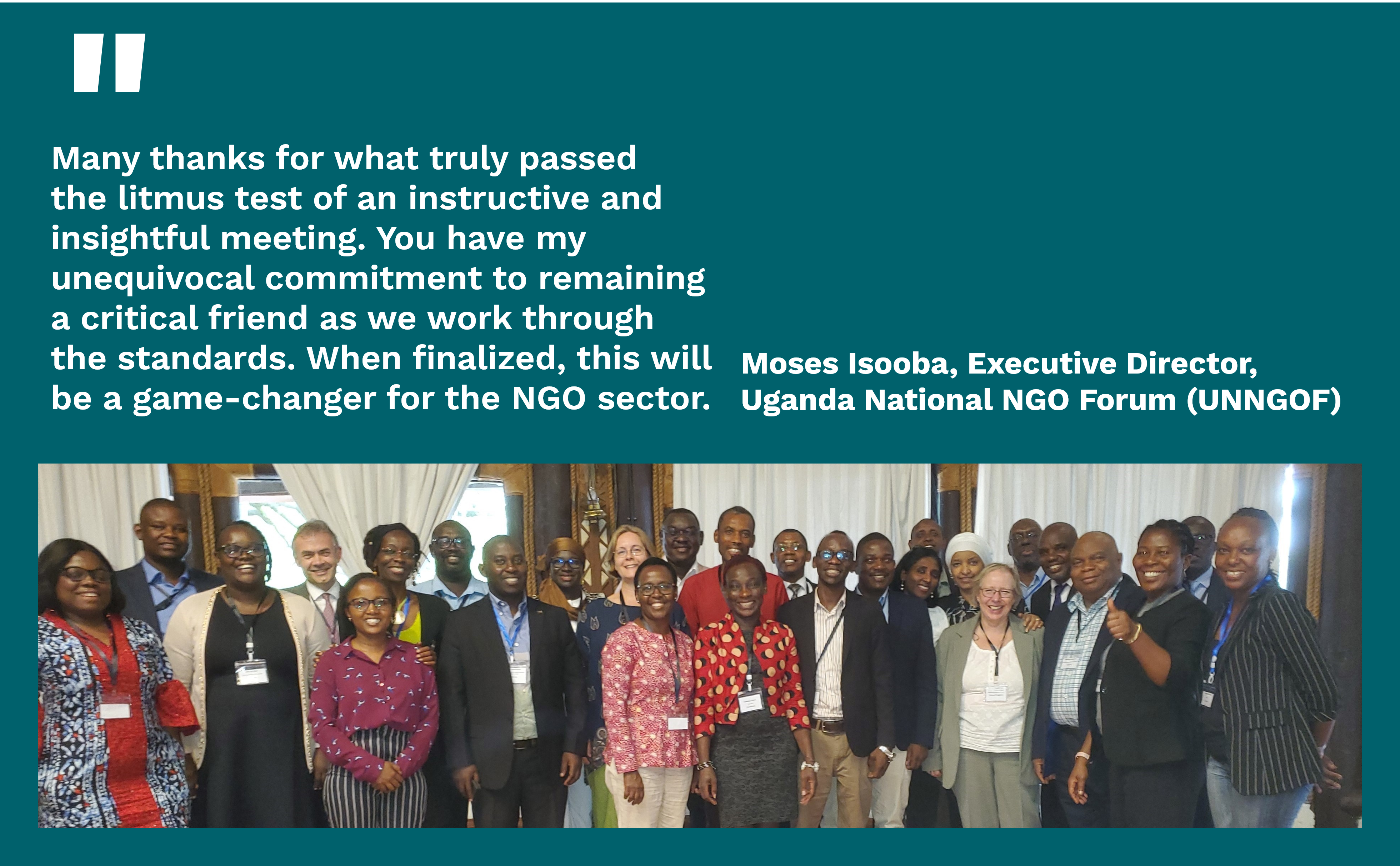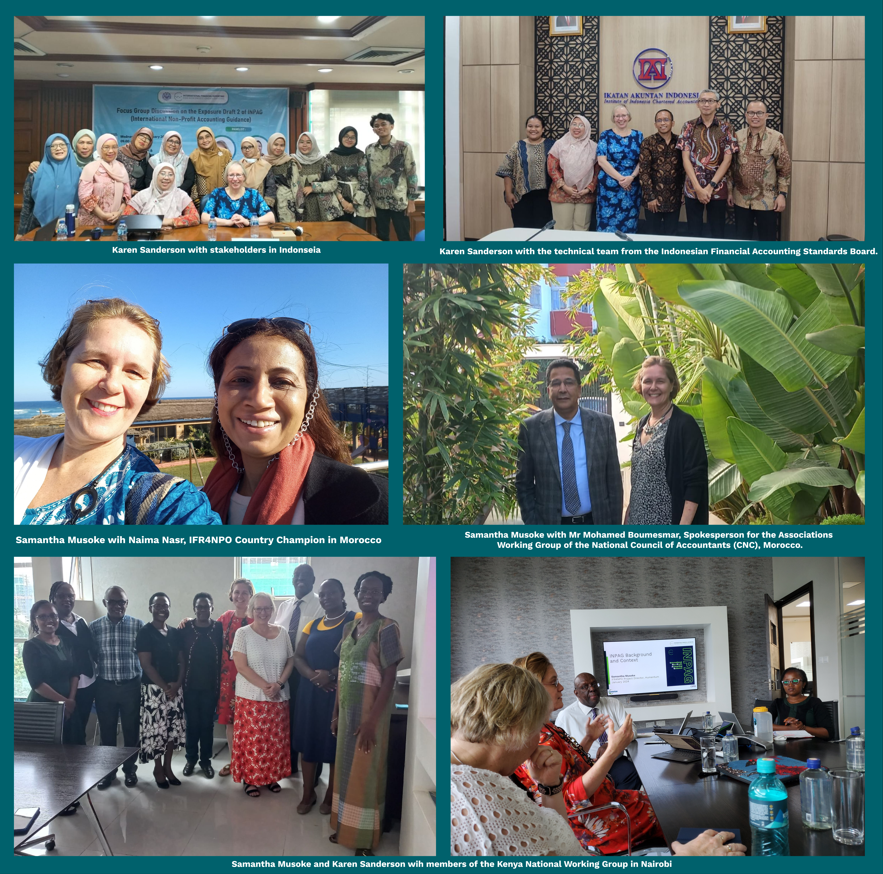
Welcome to our February newsletter. The past month was quite eventful as we actively engaged with stakeholders across 7 countries in Asia and Africa. In this newsletter, we provide a gentle reminder about the importance of submitting your comments to International Non-Profit Accounting Guidance Exposure Draft 2 (INPAG ED2) before the 15 March 2024 deadline. We also announce the forthcoming survey for INPAG ED2 which will be another way for us to get your feedback. Remember, your engagement and feedback are invaluable as we strive to enhance financial reporting standards for non-profit organisations.

The countdown to submitting your feedback on Exposure Draft 2 (ED2) has begun! With less than one month until the response deadline, now is the time to review the proposals, share your insights, and shape the future of financial reporting for non-profit organisations. Don’t miss this opportunity to make your voice heard and contribute to the development of International Non-Profit Accounting Guidance (INPAG). You can submit comments by clicking here. Your feedback is valuable in ensuring that the standards reflect the diverse needs and perspectives of the non-profit sector stakeholders.
On 21 February, we held two 90 minute consultation roundtables for stakeholders to share their views on key aspects of Exposure Draft 2. Each session had 35 active participants, coming from 48 countries between them. It was lovely seeing the smiles on people’s faces as they returned from the breakout rooms! The comments were incredibly insightful and we will be digesting them fully in due course! A recording, summary of the chat and poll results will be shared next week.

On 1 March we will be releasing a survey where you can also share your thoughts. This will be available in English, Spanish and French, so you can conveniently share your views.
The highlight of January was bringing relevant stakeholders from across Africa to a one-day, regional consultation event in Nairobi, Kenya. 30 project stakeholders from 12 Countries in Africa, considered, discussed, shared their perspectives and provided valuable feedback on proposals in INPAG ED2.
We were delighted to have such rich conversations at this event. This reinforced our conviction that input from stakeholders will improve the quality and applicability of the Guidance for subsequent adoption in Africa and beyond.

We are excited to share this blog written by Mark Jerome, who recently joined the INPAG Governance Group. In this piece, Mark shares his journey from London to unexpected opportunities in Southeast Asia.
He reflects on his experiences and the challenges posed by the lack of sector-specific financial reporting standards, highlighting the importance of consistent reporting and the role of IFR4NPO in addressing this gap.
Click here to read the blog!
Last month we shared photos from visits by Samantha Musoke and Karen Sanderson to Malaysia, the Philippines, Ethiopia, and Ghana. This month, we can share mpre puctures from Kenya, Morocco & Indonesia. The purpose of these visits was to meet and build relationships with key decision makers, and understand the appetite for adoption of INPAG, unpacking any country-specific factors. All our hopes were met, and we were moved by the hospitality and warmth from Country Champions and others. Thank you!

Later this month, Karen Sanderson will be visiting Colombia, Jamaica, Panama, and Peru.
The theme for the roundtable was “The Africa We Want”. Hosted by the Pan African Federation of Accountants, the African Union and The World Bank, this event, was the first of its kind. It was a fabulous opportunity to put non-profit financial reporting on the map, in front of Accountants General, Auditors General and Presidents of Professional Accounting Organisations from across the continent, as well as IFAC (International Federation of Accountants) and IPSASB (International Public Sector Accounting Standards Board). A brief poll during the session shows the positive response.

The proposals for grant accounting in INPAG ED2 start with the premise that the specifics of individual grant agreements are the primary driver for deciding which accounting treatment to apply. We are establishing a small working group to provide guidance to support the drafting and interpretation of grant agreements to ensure clarity and ease of application. It will comprise members drawn from grant makers, grant recipients (both local and international NGOs), auditors and consultants, each with experience and expertise, representing a variety of geographies and stakeholder groups, including perspectives of legal, business development, compliance, programmes, and finance etc.
Check out the TOR here. If you feel you have the skills and would be willing to commit your time, please fill out the form here.
Practitioner Advisory Group (PAG): The PAG met on 8 February 2024 met to discuss fund accounting, fundraising costs and Supplementary Statements, and potential impacts from recent changes to IFRS for SMEs – all topics in Exposure Draft 3. The papers and recording are available here.
Donor Reference Group (DRG): The DRG met on 8 February to discuss fund accounting, fundraising costs and Supplementary Statements, all topics in Exposure Draft 3.
Governance Group: The Governance Group also met on 8 February (it was a long day!), with the 3 newest members in attendance for the first time.
Technical Advisory Group (TAG): The papers for the next TAG meeting on 27 February 2024 are available here. This will be final review of Exposure Draft 3 before we prepare for publishing in May 2024.
Thanks for taking the time to read our newsletter – I’d love to hear your comments or reactions. Please follow us on LinkedIn, X and YouTube to stay connected. If you received this newsletter from someone else, please subscribe to stay in touch.
In case you encounter any issues or questions while engaging with the resources provided for INPAG ED2, please reach out to us at info@ifr4npo.org, and we will work to make the process smoother for you.
– Samantha Musoke, IFR4NPO Project Director, Humentum